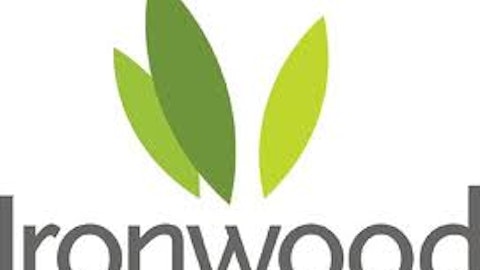
The company’s pipeline needs help. AstraZeneca faces a potent patent cliff ahead in the near future, and without new products to compensate for the inevitable sales losses to come, this company will struggle to succeed. Is a well-timed acquisition just what AstraZeneca needs to stave off the losses to come?
Earnings trouble, past and future
Let’s review the company’s waning fortunes and why it’s in bad shape.
AstraZeneca’s full-year revenue fell 17% year-over-year in 2012, with operating profit and earnings per share both falling more than 30% in the same time frame. The only silver lining came in that fourth-quarter losses managed to top even more downbeat analyst projections; still, that’s little consolation for long-term investors concerned about the future.
The U.S. market has taken the biggest bite out of AstraZeneca. Domestic sales fell 23%, which the company largely blamed on Seroquel, the company’s blockbuster schizophrenia drug, losing patent protection last March. Emerging markets did manage to grow by a meager 6%, but that won’t be enough to power AstraZeneca’s future.
With AstraZeneca CEO Pascal Soriot projecting more losses in 2013, the mess isn’t going away any time soon. Seroquel’s losses have certainly hurt, but AstraZeneca’s patent-related woes don’t stop there. Nexium and Crestor, both top sellers for the company, face patent expirations of their own in 2014 and 2016, respectively. AstraZeneca’s already given us a preview of what could happen with Crestor: Generic competition in Canada knocked the drug’s sales down 84% in 2012.
A barren pipeline can’t feed the future
Unfortunately for long-term investors, AstraZeneca’s pipeline isn’t anything impressive. Disappointing clinical trials put the kibosh on AstraZeneca’s phase 3 rheumatoid arthritis medication fostamatinib, after studies last year showed the product failed to match AbbVie Inc (NYSE:ABBV)‘s RA market-leading therapy — blockbuster household-name Humira — in efficacy. AstraZeneca is still on pace to file for fostamatinib’s regulatory approval later this year, but don’t expect the drug to make much of a dent in the market. In any case, fostammatinib isn’t going to even approach Humira’s sales, which hit $9.3 billion in 2012 and are projected to go higher in 2013.
Forxiga, the company’s diabetes medication, did receive approval late last year in the EU, but with the FDA rejecting the drug, peak sales expectations are muted. AstraZeneca’s pipeline is in desperate need of a blockbuster — or at least something that can deliver a steady stream of revenue. Credit Suisse noted in a report that AstraZeneca would need to add $6 billion in annual sales just to make 2% sales growth by 2016; that’s not going to happen without a major move.
Soriot did mention late last year after taking the helm at AstraZeneca that, “We need to bolster our pipeline and there is no question we will rely on business development.” While Soriot has sounded receptive to the possibility of takeovers, he sounded less optimistic on any massive, industry-shaking type of takeover earlier this year, saying, “I don’t think we need a large-scale acquisition to succeed.”
A warning from rating agency Standard & Poor’s further hints that large-scale acquisitions might not be coming. The agency mentioned that it could cut AstraZeneca’s AA credit rating with a major purchase, citing the pressures of a big deal with patent expirations on the way.




